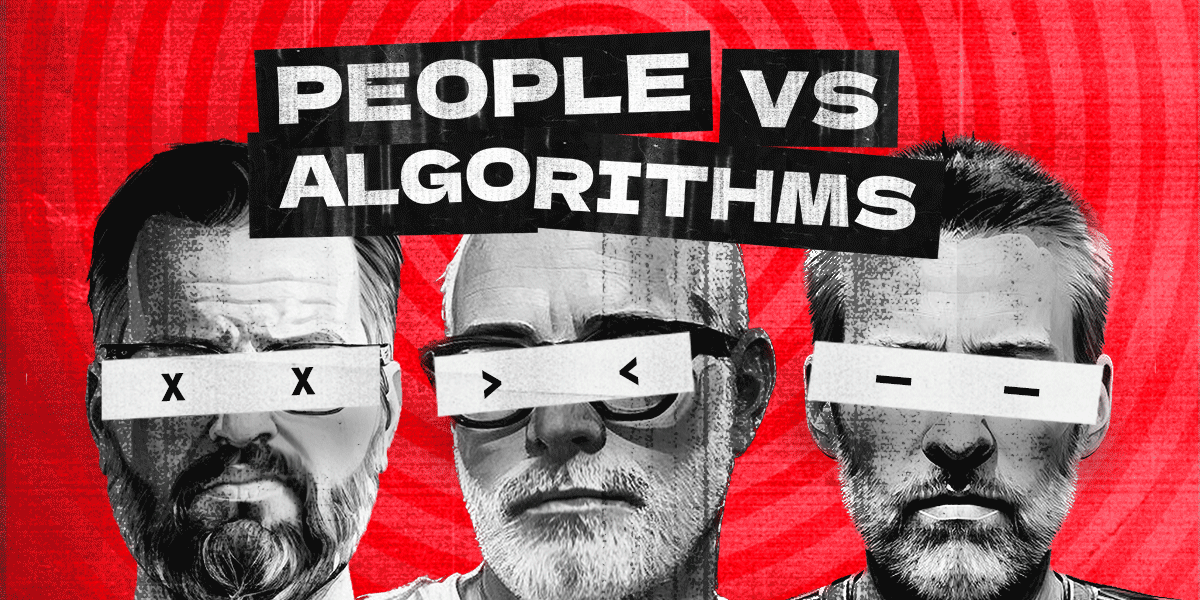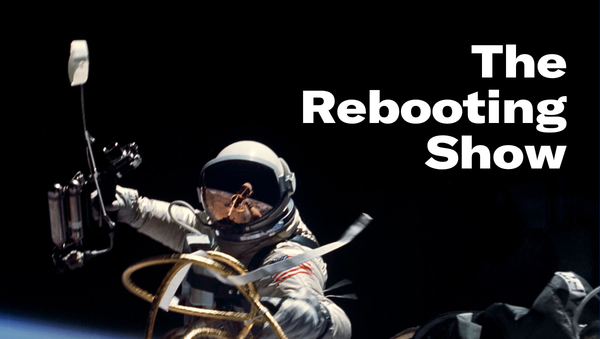Into the Fediverse
Plus: In praise of LinkedIn, the last good social platform

The Rebooting has partnered with Permutive to do a research project on the state of publisher ad businesses. We put together a 10-question survey to understand the state of publisher ad revenue so far this year. The responses will form the basis of a research report to uncover:
- The areas of publisher ad businesses that are expanding
- The biggest challenges publishers face in their ad businesses
- The status of publishers’ direct-sold advertising revenue
If you’re on the revenue side of a publisher, please take the 10-question survey. It should take only 5-7 minutes to complete. Thanks in advance – and thanks to Permutive for underwriting this research.
In today’s newsletter:
- The uncertain next chapter for the open web
- People vs Algorithms on the fediverse
- Why LinkedIn won (member content)
The Alt-Platform web
The open web is by all accounts dying. The immediate cause of death will be the chaotic mess that is internet search, which will only get worse with AI. Google’s latest search engine update has thrown the SEO community into a frenzy. There are winners and losers, and Google’s reputation as the most reliable algorithm is over. Ed Zitron is angry about it. He’s blaming the management consultants and an array of managerial types who have strip mined the internet.
But what replaces the open internet? There will clearly be increased centralization with AI. The brays for regulation are quietly cheered by the incumbents because incumbents always win with regulation. And the avalanche of litigation will only lock in the advantages of the Magnificent Seven. If Ed wants to get made about something else, he should do a history of the death of Google Reader, because RSS was the best hope for the open web: an open protocol that enabled a diverse array of content and direct connections to an audience rather than algorithmic mediation.
The candidates so far are as inspiring as the Humane pin and Rabbit R1. All are flawed, either impossibly geeky – nobody wants to maintain their own servers, much less darken the doorstep of Mastodon – or heavily taking the vapors of nostalgia for a bygone past.
On the impossibly geeky front, we have the concept of the fediverse. Alex walked us through the ins and outs of the this “movement” (never a good sign when that’s used) to stitch together social networks by making them interoperable. Basically, you won’t get trapped on a social platform because it has all of your content and all of your connections. You can take your crew and precious content with you from place to place. Platforms are the ultimate roach motels.
The old rule in Silicon Valley is you’re closed when you’re winning and open source when you’re losing. The fediverse has this issue. The biggest proponents of it – Flipboard, Ghost, Jack Dorsey – are also-rans in a world run by massive platforms that are fighting intergalactic battles for GPUs. This fediverse stuff is a sideshow to the big boys. Troy made a simple but strong point: Why is it that Meta supports the fediverse for X clone Threads but not for dominant cash cow Instagram? Am I to believe Zuck’s hey-everybody influencer-style video lauding open source is colored by commercial interests? Heavens.
That said, I like the idea of the fediverse for the same reason I was attracted to DAOs in the heady, weird days of 2021. There needs to be new ways of individuals to claw back autonomy. The open web was not without its sins, but I personally would like a non-algorithmic driven corner of the Information Space. Despite what Troy believes, I’m not naive. I know giant algorithmic platforms will “win.” People will line up to get Neuralink, no doubt. I’d just like there to be alternatives that aren’t just moving to a small Italian fishing village to join the old men with their hands behind their backs, peering into construction sites.
The nostalgic crowd just wants to be done with it all and bring back the blogosphere. Newsletters have played into that nostalgia. The best have voice, like blogs, and the connection with readers is similar. Blogs were best when they narrowed the gap between the writer and the audience. They also happen to provide first-party data at a time when it’s value has never been higher. Peak email has been declared roughly every year since 1996. They have many flaws, including limited functionality and poor metrics that are getting worse thanks to platform restrictions (never truly independent in tech).
Yet email is ubiquitous and open. Everyone uses it. Having content and communications in one place is not as odd as it once seemed. We have blurred most lines at this point. Email will continue as a robust channel. Beehiiv, which I invested in during its angel round, just raised a $33 million Series B, then added an oversubscribed community round of $1 million in roughly two hours. Tyler Denk and his team have done an amazing job building this product. They focused on the product vs the politics.
More journalists and independent creators will build businesses around email distribution, whether on Beehiiv, Substack, Ghost or others. This market will continue to attract talented journalists like Ken Klippenstein, who left The Intercept to take the independent path and along the way highlighted just how bloated institutional publishers remain. (The chief strategy officer with no direct reports is a perfect encapsulation of this bureaucratic morass.) This is not a dying market. Yes, there are plenty of newsletters, but there are too may video games too. Why make another?
The nostalgia for the homepage is harder for me to sort out. Kyle Chayka brought the issue to The New Yorker this week – Semafor’s Max Tani got there earlier; we must honor “conceptual scoops” – and while I share his enthusiasm for a more artisanal web, I just don’t understand how exactly these websites will get distribution. I don’t think it’s realistic to believe that many people will type on URLs except for a precious few sites. The power law in that kind of media ecosystem is severe. DailyMail, Drudge, Defector and a few others can pull it off; most will not, no matter the scrolling aggregation features they add to imitate Twitter.
The one hope for the homepage is that the current distribution chokepoints become obsolete. My inclination is that new aggregation points emerge in such a scenario. For all the talk of media’s “extinction,” I rarely feel there is too little, it’s just the type of media being created and winning is different. The bigger issue is the value of web traffic, direct and indirect, is in decline. The “content control” features of Arc will come to all browsers because that’s how competition works. Safari is going to make it easy for people to erase banner ads. Nobody will protest when Apple and Google make it simple to block autoplay videos. This is the same story as the pop-under craze that only ended because browsers put an end to it.
Perhaps a melding of all of these ideas is the one around superformats, “a federation of popular voices (with their own loyal audiences) that assemble around psychographics and values/like-mindedness.” This is all very vague to me, but I see the appeal of breaking out of the confines of specific digital media formats. We’re already seeing newsletters that are also podcasts, something I want to do with these newsletters because they’re often too long and some people would rather listen while walking the dog. I can see video springing from these too, and in-person and virtual gatherings that grow out of the content. That feels more modern than winning on a specific distribution channel with a specific content format. Those games tend to become about optimization. Next thing you know, you’ve gone from being the voice of a tech revolution to shilling streaming subscriptions with SEO bait.

Bye-Bye buffering
It’s time to say goodbye to buffering frustrations on your website and welcome a smoother, more enjoyable video viewing experience. Learn about all the exciting features of the new, lightning-fast video player by EX․CO, the leading online video platform that empowers publishers to own their video strategy for maximum yield. Learn more.

On this week’s episode of People vs Algorithms, Alex gives us a breakdown of the fediverse and why it matters. Troy is skeptical and celebrates the QVCification of the web. Commerce is a form of communication, after all. We also cover:
- Publisher AI deals are less negotiations, more arranging the terms of surrender
- Biden vs NYT and why it’s another example of the waning power of institutional media
- The current chaotic state of search
- The brand risk of AI becoming synonymous with misinformation and shitty products
Listen on Apple | Spotify | other platforms
Why LinkedIn won
In March 2007, I set up a Twitter account, mostly because my job required me to be on top of new Internet things. I quickly realized that an inscrutable service focused on one-liners, non-sequiturs and snarky wisecracks was the asylum I was meant for. Soon enough, I started sharing more work-related content, and recognized that building my own connection to an audience was a way to get leverage in a profession that seemed designed to commoditize cubicle dwellers like me and replace me when I wanted to live without roommates and not right next to my refrigerator.
Now, Twitter is X, and it seems mostly a place to get angry. I rarely post there anymore, although I still use it too much, ostensibly to find information but more often to rubberneck at the various outrages. It makes me miss when it was a place to talk about what you had for lunch. My DMs are filled with crypto scammers, podcast PR firms, and a surprising number of people promising to get me published on Forbes. It sorta reminds of the worst of LinkedIn. Meanwhile, I find myself spending more time on LinkedIn for the content shared there.




